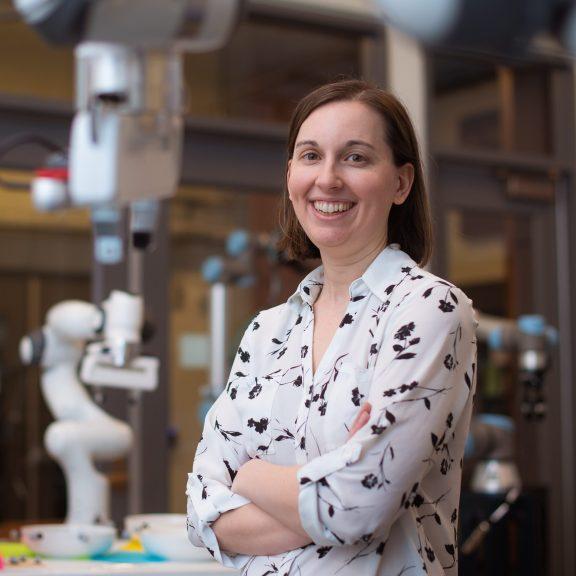
Julie Shah is the H.N. Slater Professor and Department Head of Aeronautics and Astronautics at MIT, co-leader of MIT’s Work of the Future Initiative, and director of the Interactive Robotics Group. Her research focuses on autonomous systems, human-robot collaboration, and AI planning, with applications in aerospace, healthcare, and manufacturing. Recognized by the NSF CAREER award and MIT Technology Review’s "35 Innovators Under 35," she has also received the IEEE RAS Academic Early Career Award. Prof. Shah holds S.B., S.M., and Ph.D. degrees from MIT and is co-author of What to Expect When You’re Expecting Robots.


